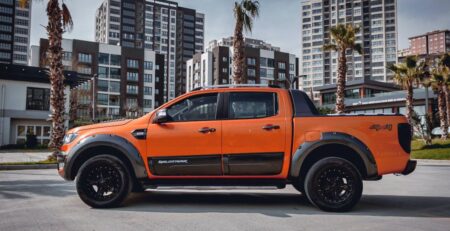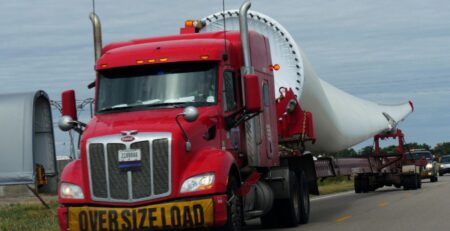Every opportunity brings a bunch of benefits with it. While embarking on a journey as a pilot car driver accompanies multiple opportunities and benefits.
The duties of a pilot car driver aren’t easy, you have to be mindful of this task. His role is crucial in ensuring safe transportation for heavy loads while keeping traffic smooth around them.
It is a blend of adventure and financial rewards. Beyond thrilling open highways, there are multiple perks to choosing this profession.
In this article, we’ll highlight the benefits of becoming a pilot car driver.
Top Benefits
Considering a career as a pilot car driver? Here are the top reasons why our drivers love their jobs.
1. Work where you want, when you want
Pilot Car drivers enjoy the flexibility that comes with creating their schedules. They can choose to travel across the United States or stay local to their region. With Pilot Car Loads’ job board, drivers can conveniently find new jobs that fit their schedules. By becoming a Pro Member, you can receive these opportunities directly on your phone!
2. Certification is easy!
State requirements may differ, but becoming a pilot car driver can be a fast and effective process, allowing you to acquire the necessary skills and secure employment opportunities quickly. There are several training programs and schools available to assist you in getting started.
3. Control your Earnings
Pilot car drivers are paid according to how often they drive and how far they go. It’s a lucrative job that pays more for longer travels. The job board on Pilot Car Loads allows you to control your earning potential without boundaries by sending alerts for the best opportunities that become available. Pilot car driving is a professional choice that holds great potential, as demand from several key industries grows.
Pilot Car Driver Earning
The average salary for pilot car drivers in the US as of August 2022 is $37,086 per year.
How to Become a Pilot Car Driver?
Under certain operating conditions, becoming a pilot car driver is a reasonably straightforward process. A driver with a current driver’s license and a vehicle covered by liability insurance can become a pilot car driver because most jurisdictions do not regulate the profession.
Pilot car operators may need to meet additional state standards in addition to certification requirements. In addition to completing a defensive driving course, earning a commercial driver’s license, and getting their flagger certification, these criteria may include being at least 18 or 21 years old, depending on the state. To become a pilot car operator, one can obtain a helpful study guide from the Federal Highway Administration, even if the state where the operator intends to operate does not have these requirements.
Requirements to Become a Pilot Car Driver
Pilot vehicle drivers are critical to safe transit and construction operations. Their duties also include escorting heavy loads and making sure everything on the road is safe, including the truck and other fellow drivers. If you like to drive and are thinking about a career in transportation, you surely need to understand the responsibilities of pilot car drivers.
There are several ways of becoming a pilot car driver, and the requirements for this position are quite obvious and similar in all states. Here are five steps that can help you become a pilot car driver:
1. Finish high school
Being a pilot car driver does not require a college degree. It is advised that you complete high school. This is the basic educational requirement for most jobs, including many pilot driver positions. It may make you stand out if you already hold a college degree, but if you intend to drive professionally, it might not be a wise investment.
2. Get a license
Pilot car drivers must have a current driver’s license to work as transportation professionals. Check to see if the one you now have has expired. But to get a driving license, you need to pass driving as well as eye tests to do several hours of supervised driving. Every state has different requirements for driving tests and granting licenses.
As the pilot car driver’s job is critical and very precise, he needs a commercial driving license to get the job. In any other case, like missing necessary documents, you cannot enroll for training and get certification. Following the issuance of your license, you must drive defensively and keep your record spotless. Employers are hesitant to consider candidates with a history of accidents, irresponsible driving, or speeding citations because pilot driving places a strong emphasis on safety. To improve your driving safety, some jurisdictions may even mandate that you finish a defensive driving course.
3. Get certified
Although not mandatory in all states, some areas require certification for pilot drivers. This certification process may involve learning a specific set of rules and passing a test. These are the states where pilot car drivers must complete certification before starting to work:
- Arizona
- Colorado
- Florida
- Georgia
- Louisiana
- Minnesota
- Nevada
- New Mexico
- New York
- Oklahoma
- Virginia
- Washington
4. Learn the rules
It is important to know the specific rules for pilot drivers in each state before you begin driving. Start by learning what gear needs to be in your automobile and making sure you know how to operate it. It’s also crucial to confirm local regulations as certain states could mandate regular inspections.
5. Get insurance
Pilot car driver’s insurance is a mandatory prerequisite. This coverage saves them from becoming subject to huge costs in case they are involved in an accident or their vehicle is destroyed. In most states, pilot vehicles are required to have commercial auto coverage. Additionally, some areas recommend general or professional liability coverage along with personal injury protection.
What’s the job outlook for pilot car drivers?
Although the Labor Statistics does not have specific information on pilot car drivers, it provides data on the transportation industry in general. This category includes pilot car drivers and other similar occupations that involve the transportation of goods. According to the data, employment in the transportation industry can increase by 6% resulting in 861,800 new jobs.
How do pilot cars find loads?
Similar to trucking companies, pilot car operators can find loads by forming relationships with carriers and brokers. However, there are also load boards that cater to pilot cars which will be the easiest way for new drivers to find work.
Conclusion
In conclusion, there are several advantages to becoming a pilot car driver, including flexible work hours, the chance to travel, financial compensation, and working autonomy.
A career in driving offers a means of fulfillment for individuals who possess a strong desire to drive, seek new experiences, and make a significant impact in the transportation sector.
FAQs
Do pilot car drivers have flexible timing benefits?
Pilot car drivers frequently have the freedom to select their own schedules and working hours. Compared to regular nine-to-five work, they can have a more flexible lifestyle and accommodate personal responsibilities.
What exciting opportunities does a pilot car driver enjoy?
Pilot car drivers are exposed to a variety of environments, customs, and experiences. They get to go on a variety of roadways, including broad freeways in the desert and spiraling paths through the mountains.
What kind of road independence do the drivers have?
They work autonomously on the road. Their work demands real-time and on-spot decisions to navigate challenges well.










